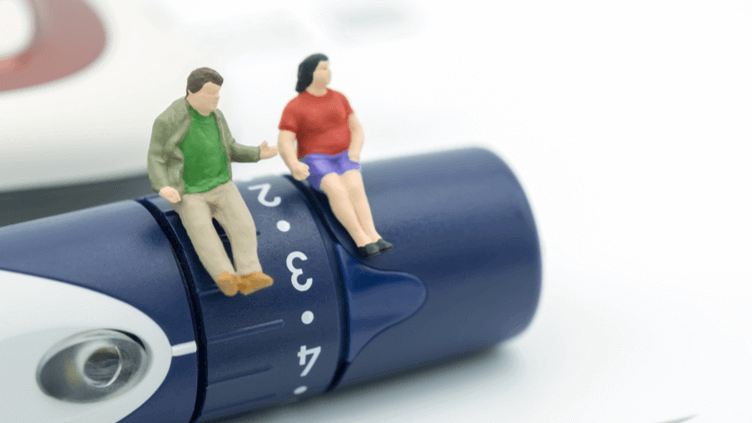
Types Of Insulin For Diabetes Treatment
People with diabetes have a tenuous relationship with sugar and insulin. Diabetes patients struggle to process and convert sugar (blood glucose) into energy. This is primarily due to their limited ability to produce Insulin- a key component in the body's energy production process.
Insulin and Diabetes
Insulin is a hormone that is produced in the pancreas. Insulin enables your body's cells to process glucose or sugar. The key function of insulin is to manage the blood sugar levels in your body. Insulin helps your body to absorb and maintain blood sugar at acceptable levels.
If the blood sugar levels in your body are high, then insulin helps to store the sugar in your liver until your body needs more sugar (between meals or during physical activity). People with diabetes develop a resistance to insulin action that diminishes its effectiveness. As a result, the body of a diabetic needs more insulin to persuade its fat and muscle cells to take up glucose as well as store any excess sugar in the liver.
Insulin Production And Diabetes
[caption id="attachment_11341" align="alignnone" width="752"] types of insulin[/caption]
types of insulin[/caption]
-
Type 1 Diabetes
In people with type 1 diabetes, the body does not produce insulin because the beta cells in the pancreas are damaged or destroyed. In this case, insulin injections are required to allow the body to process glucose and avoid complications that arise from hyperglycemia. -
Type 2 Diabetes
People with type 2 diabetes suffer from insulin resistance and are thus treated with medication to either improve insulin release or reduce insulin resistance. Insulin treatment may be needed for type 2 diabetes of long-standing duration, during surgery, for medical illnesses, during pregnancy, or if the oral medication cannot achieve glucose control.
They may also need insulin shots to help them process the sugar and prevent long-term complications that arise from diabetes. Additionally, type 2 diabetes may be treated with oral medications, along with a healthy diet and exercise. Since type 2 diabetes is a progressive condition, the longer someone has it, the more likely he or she is to receive insulin medications to maintain blood sugar levels.
Types Of Insulin
Various types of insulin are used to treat diabetes. They are usually categorised on the basis of how they affect the body.
-
Rapid-acting Insulin
Rapid insulin starts working approximately 15 minutes after the injection is administered, peaks in an hour but continues to work for two to four hours. This is usually taken before a meal and in addition to long-acting insulin. -
Short-acting Insulin
It starts working approximately 30 minutes after injection and peaks at approximately 2 to 3 hours but will continue to work for three to six hours. It is usually given before a meal and in addition to long-acting insulin. Regular insulin is an example of short-acting insulin. -
Intermediate-acting Insulin
It starts working approximately 2 to 4 hours after injection, peaks approximately 4 to 12 hours later, and continues to work for 12-18 hours. It is usually taken twice a day and in addition to rapid or short-acting insulin. -
Long-acting Insulin
It starts working after several hours after injection and works for approximately 24 hours. If necessary, it is often used in combination with rapid or short-acting insulin.
Insulin can be given through a syringe injection pen, or an insulin pump that delivers a continuous flow of insulin.
As always your doctor will work with you to figure out which type of insulin works best for you, based on your lifestyle and diabetes type.

